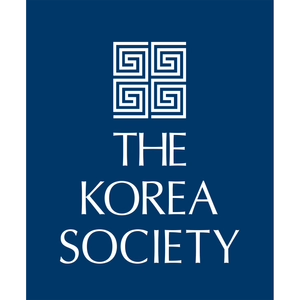
Daily Update w. Diane Sare Apr 9th – It's Still The Economy, Stupid!
04/09/25 • 14 min
Previous Episode

Saturday Manhattan Project w. Dennis + Harley Apr 5th – Make Wealth, Not War!!!
Putin’s top envoy and CEO of the Russian Direct Investment Fund Kirill Dmitriev met in the White House with Steve Witkoff on Friday. Despite drama being stirred up in mainstream media about Trump being angry that negotiations are “stalling,” Dmitriev indicated a different, more positive tone, in an X post: “Whatever your politics—dialogue between the US and Russia matters. It’s about building a more secure, more prosperous world for everyone.” Yesterday, Dmitriev posted on Telegram a more complete explanation of his diplomacy: "Dialogue between Russia and the U.S., which is of the utmost importance for the entire world, has been completely destroyed under the previous administration of U.S. President Joe Biden." Further, "numerous forces in many countries are now vying to derail the efforts being made by Moscow and Washington to restore relations. The opponents of rapprochement are afraid that Russia and the U.S. will find common ground, begin to better understand each other and build cooperation, both in international affairs and in the economy."President Trump has also indicated that he is willing to engage in indirect negotiations with Iran, surprising those who wish to see an immediate attack on that nation, coordinated with Israel. The present situation in the world, whether in Ukraine, Southwest Asia, or anywhere else, demands non-war, nonviolent solutions which represent a complete change in the present way of thinking. The Russia-U.S. resumption of relations represents one such axiomatic shift taking place, which is driving the imperial warmongers in the City of London insane. The American System of Physical Economy—not “political economy,”but physical economy— should be put to international use in the formation of a new, security and development architecture. This is achievable because of the new strategic geometry of the BRICS+ and Global South nations which has come into existence, and which the neocons in Washington and London have deliberately been trying to ignore. President Trump’s inclination to reach a long-term settlement of the Ukraine crisis puts him at odds with imperial British financial forces, and their employees in the intelligence and media establishments, that are now pushing for him to go to war in Iran, China, and other places. We must not sit on the sidelines at this historic crossroads. Rather, in the tradition of great patriotic figures in American history, such as Martin Luther King, Jr., or Lyndon LaRouche, we can act as historical individuals, viewing the world “from the mountaintop.”
Next Episode

April 9th – Helga Zepp-LaRouche Interviews Ambassador Jack Matlock
Helga Zepp-LaRouche will be speaking with the former U.S. Ambassador to the Soviet Union, Jack Matlock. Ambassador Matlock was a career Foreign Service officer, serving as the U.S. Ambassador to Moscow during the turbulent years of 1987 to 1991, which preceded the peaceful dissolution of the Soviet Union. From that vantage point, he has special insights into U.S.-Russian relations, including the prospect for normalization of relations today, after the breakdown during the Biden years.
If you like this episode you’ll love
Episode Comments
Generate a badge
Get a badge for your website that links back to this episode
<a href="https://goodpods.com/podcasts/programs-and-interviews-274987/daily-update-w-diane-sare-apr-9th-its-still-the-economy-stupid-89168201"> <img src="https://storage.googleapis.com/goodpods-images-bucket/badges/generic-badge-1.svg" alt="listen to daily update w. diane sare apr 9th – it's still the economy, stupid! on goodpods" style="width: 225px" /> </a>
Copy




